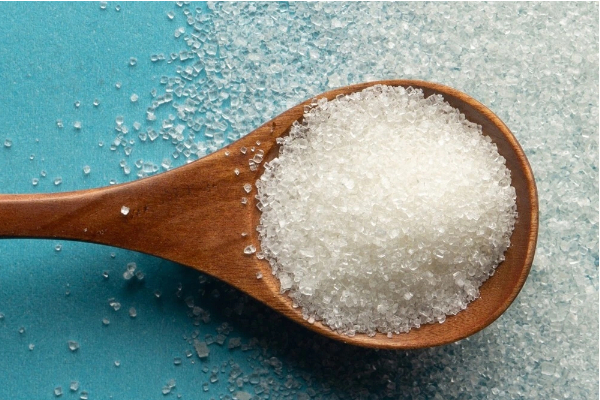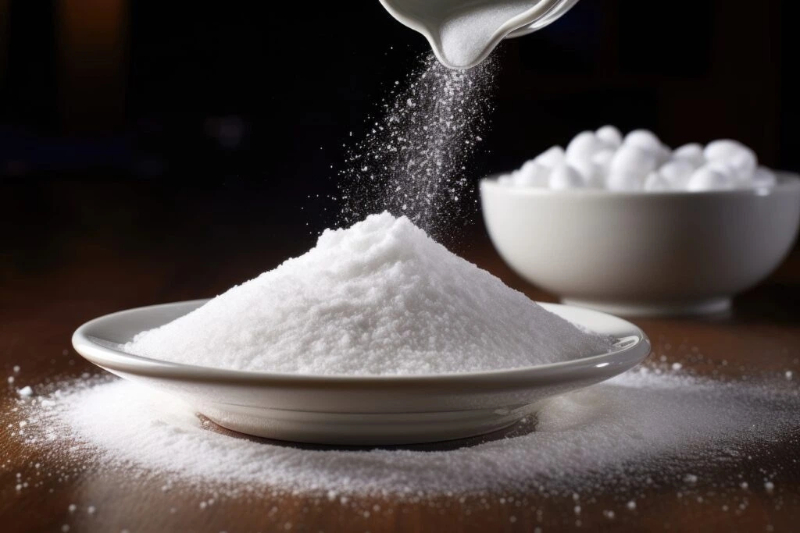Views: 222 Author: Sara Publish Time: 2025-09-04 Origin: Site








Content Menu
● Does Aspartame Cause Diarrhea?
● The Mechanism Behind Aspartame-Induced Diarrhea
● Who Is More Likely to Experience Diarrhea from Aspartame?
● Other Potential Side Effects of Aspartame
● Aspartame and the Gut Microbiome
● Balancing Safety and Consumption
● Other Health Concerns Associated with Aspartame
● Frequently Asked Questions (FAQs)
>> 1. Can aspartame definitely cause diarrhea?
>> 2. Are other side effects common with aspartame?
>> 3. How does aspartame affect the gut microbiome?
>> 4. Is aspartame safe for everyone?
>> 5. What are alternatives to aspartame?
Aspartame, an artificial sweetener approximately 200 times sweeter than sugar, is widely used in sugar-free foods and beverages. Its popularity stems from offering sweetness without calories. However, concerns about its safety persist, particularly regarding its impact on digestion and whether it can cause diarrhea. This article examines aspartame's potential to induce diarrhea, its effects on the digestive system, related health issues, and how to manage intake for better tolerance.

Aspartame is a synthetic sweetener used in numerous food products, including diet sodas, sugar-free gums, candies, and pharmaceuticals. It is metabolized in the body into phenylalanine, aspartic acid, and methanol, substances that naturally occur in many common foods. Regulatory agencies such as the FDA and EFSA have approved aspartame as safe for the general population, though people with phenylketonuria (PKU) must avoid it due to their inability to metabolize phenylalanine properly.
Reports and studies indicate that some individuals experience gastrointestinal symptoms after consuming aspartame, including diarrhea. Such reactions are more commonly observed in people who consume high doses of aspartame or those with increased sensitivity to artificial sweeteners.
Aspartame can affect gut function by altering the gut microbiome—the community of beneficial bacteria essential for digestion and immune defense. Research shows that artificial sweeteners like aspartame may reduce populations of beneficial bacteria such as Lactobacillus and Bifidobacterium, potentially impairing intestinal health and leading to symptoms like bloating, gas, and diarrhea.
In addition, aspartame metabolism may increase intestinal osmotic load, drawing excess water into the intestines and causing loose stools or diarrhea. Damage to intestinal cells responsible for nutrient absorption has also been observed, which can contribute to digestive upset.
Aspartame is broken down into methanol, phenylalanine, and aspartic acid during digestion. Methanol is further metabolized into formaldehyde and formic acid, which in excessive amounts may irritate intestinal tissues. Elevated intestinal irritation can disrupt normal bowel function, leading to diarrhea.
Moreover, aspartame may trigger changes in gut bacteria diversity and balance, diminishing beneficial microbes and allowing harmful ones to proliferate. This imbalance, called dysbiosis, is linked to digestive symptoms including diarrhea.
Animal studies illustrate increased oxidative stress markers in the gut and signs of inflammation after aspartame intake, providing biological plausibility for these gastrointestinal effects.
Individual tolerance to aspartame varies widely. Factors influencing susceptibility include:
- Dose: High consumption increases risk of digestive symptoms.
- Gut Health: Pre-existing gastrointestinal conditions or imbalance may predispose to adverse reactions.
- Microbiome Composition: People with less resilient or compromised gut microbiota might experience diarrhea.
- Phenylketonuria: Individuals with PKU should avoid aspartame altogether.
Those consuming multiple aspartame-containing products daily are more prone to cumulative effects causing diarrhea and other symptoms.

Diarrhea is just one possible adverse effect. Other symptoms linked to aspartame intake include:
- Headaches and migraines
- Nausea and vomiting
- Abdominal pain and cramping
- Fatigue and irritability
- Dizziness and difficulty concentrating
- Skin reactions such as rashes or hives
In rare cases, very high consumption or sensitivity can lead to more serious neurological symptoms, although typical dietary intake is unlikely to cause such outcomes.
The gut microbiome—a complex ecosystem of bacteria—plays a crucial role in digestion and overall health. Disrupting this balance through aspartame consumption could explain symptoms like diarrhea.
Studies in rodents have shown that aspartame reduces beneficial gut bacteria and increases oxidative stress, contributing to inflammation and impaired gut barrier function. These changes may facilitate diarrhea by promoting faster transit and poor absorption.
Unlike sugar alcohols (e.g., sorbitol), which have known laxative effects, aspartame does not directly ferment in the gut but can still indirectly affect gut microbial health.
Regulatory bodies worldwide, including the FDA, EFSA, and WHO, concur that aspartame is safe at recommended daily intake levels (around 40 mg/kg body weight). However, excessive consumption or individual sensitivity may lead to gastrointestinal disturbances including diarrhea.
To minimize risk:
- Track aspartame intake and avoid exceeding recommendations.
- Read product labels thoroughly to identify hidden sources.
- Monitor personal symptoms after consuming aspartame products.
- Consider alternative sweeteners that may be easier to tolerate.
Beyond digestive effects, studies have explored other health risks:
- Neurobehavioral Effects: Some animals studies link aspartame to oxidative stress and cognitive impairments, potentially through its metabolites impacting brain cells.
- Allergic Reactions: Rare systemic dermatitis or skin sensitivities have been reported at very high doses.
- Cancer Risk: The International Agency for Research on Cancer (IARC) classifies aspartame as possibly carcinogenic (Group 2B), though evidence remains limited and controversial. Most regulatory agencies agree that normal consumption is not linked to increased cancer risk.
Aspartame is a widely used artificial sweetener considered safe for most people when consumed within recommended limits. However, some individuals report diarrhea and other gastrointestinal symptoms attributed to aspartame intake. This can result from how aspartame affects gut bacteria and intestinal health, especially at higher doses or in sensitive persons. Being mindful of intake, paying attention to personal tolerance, and consulting health professionals for persistent symptoms are advisable. Responsible consumption ensures aspartame remains a useful tool in reducing sugar intake while managing digestive health.

Aspartame can cause diarrhea in some individuals, especially when consumed in large amounts or by those sensitive to artificial sweeteners. However, it does not cause diarrhea in everyone.
Yes, aside from diarrhea, side effects may include headaches, nausea, abdominal discomfort, dizziness, and skin reactions in sensitive individuals.
Aspartame can reduce populations of beneficial gut bacteria and increase oxidative stress in the gut, leading to impaired digestion and possible diarrhea.
Aspartame is considered safe for the general population at recommended doses but should be avoided by people with phenylketonuria and those who experience adverse effects.
Natural sweeteners like stevia, monk fruit, and sugar alcohols such as erythritol may be suitable alternatives depending on individual tolerance.
[1](https://pmc.ncbi.nlm.nih.gov/articles/PMC10459792/)
[2](https://pmc.ncbi.nlm.nih.gov/articles/PMC8227014/)
[3](https://www.who.int/news/item/14-07-2023-aspartame-hazard-and-risk-assessment-results-released)
[4](https://sph.umich.edu/news/2023posts/aspartame-and-cancer-a-toxicologists-take.html)
[5](https://www.sciencedirect.com/science/article/pii/S2590113323000202)
[6](https://www.cancer.org/cancer/risk-prevention/chemicals/aspartame.html)
[7](https://www.sciencedirect.com/science/article/abs/pii/S1567576924008154)
[8](https://health.osu.edu/wellness/prevention/aspartame-possibly-carcinogenic)
